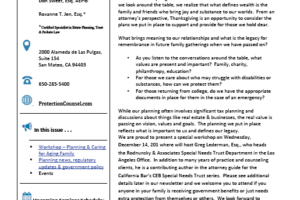Shareholders in C or S corporations or members in LLCs typically receive strong protections when operating their business. Where formalities are followed in maintaing the entity structure, these options limit the claims of business creditors to assets owned by the entity. In other words, where a claim is brought against an entity, and formalities are followed, personal assets can be protected from the claims against the business.
By way of example, suppose a business owner operates a winery with a retail wine tasting room. One day a large wine barrel bursts. Unfortunately, a customer looking over a particularly nice cabernet steps onto the wine now residing on the concrete floor – and falls. Let’s also assume that in the end, the customer wins a judgment against the wine maker for negligence and seeks to enforce the judgment and collect money.
If the winemaker has maintained her entity appropriately, in seeking to enforce the judgment, the customer will likely be limited to the assets of the business, such as cash, business checking accounts, accounts receivable, inventory (wine) and equipment. The creditor is unable to look to the personal assets of the business owner, such as her personal home, bank and savings accounts.
By utilizing a limited liability entity, the business owner has shielded their personal holdings from creditor claims against the business.
Don Sweet, Esq., works with business owners in determining whether and what type of entity is appropriate for a business. Don can be reached at 415-746-9542.





